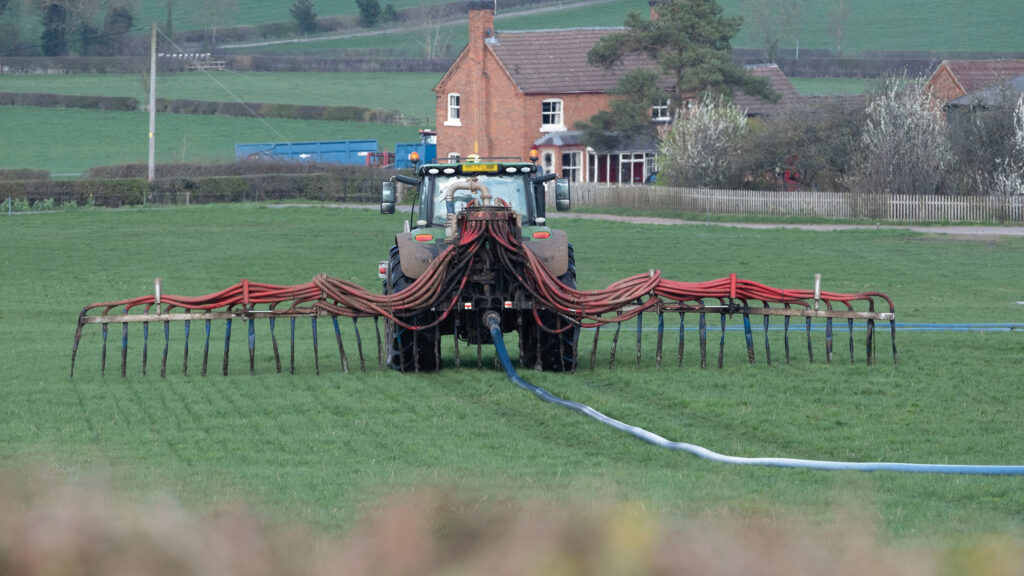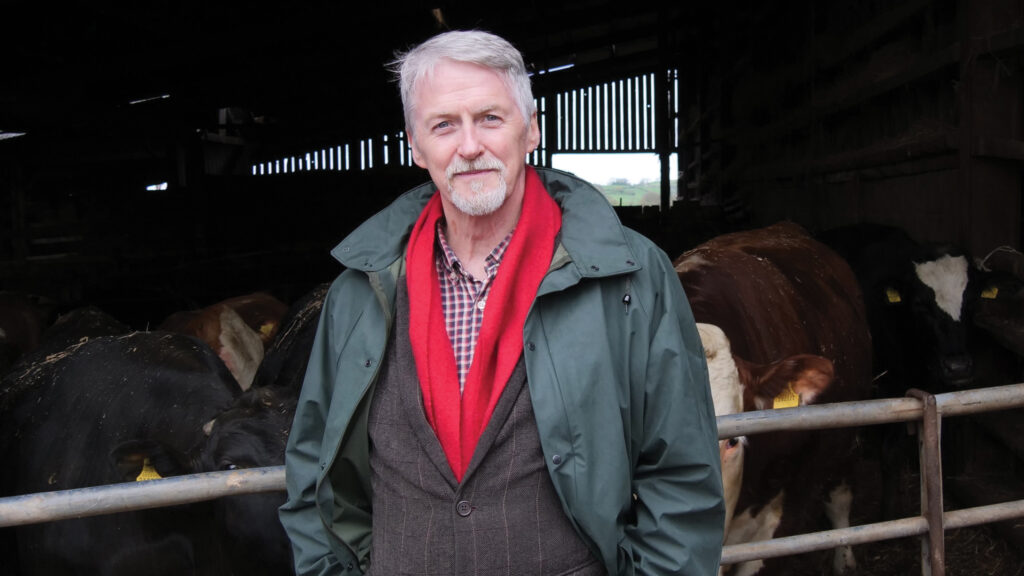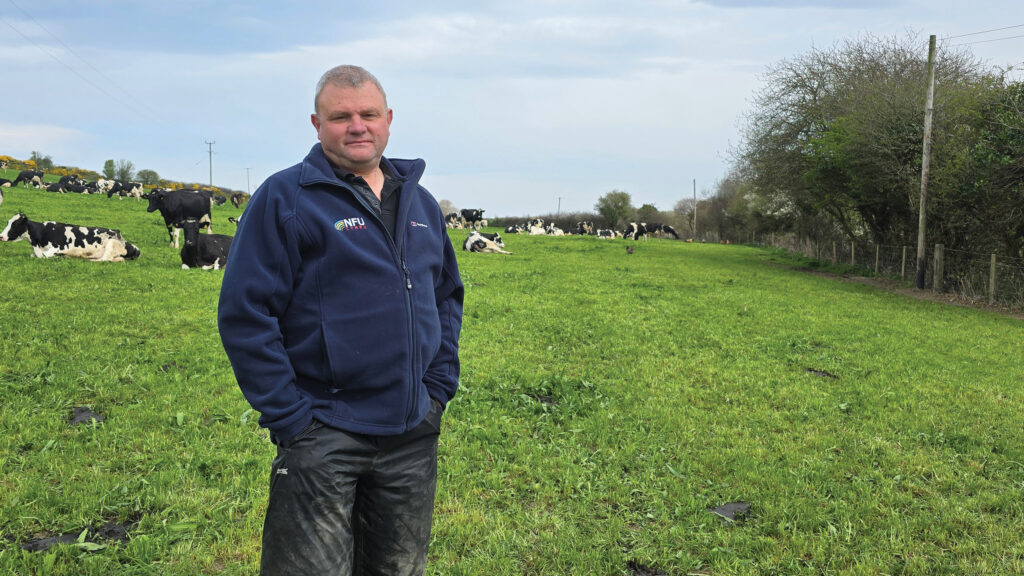NVZ review: Welsh farmer frustration continues with rules
 © Tim Scrivener
© Tim Scrivener Since 2021, farmers in Wales have had to contend with the Water Resources (Control of Agricultural Pollution) (Wales) Regulations.
These designated the whole of the country as a nitrate vulnerable zone (NVZ) and left businesses struggling to comply.
The NVZ was phased in over a three-year period, though farmers have been vocal in their objections to the rules, which they say are overly burdensome, often unworkable, and have had dire consequences at farm level.
Farmers and unions alike had hoped to see significant changes being recommended in a four-yearly statutory review, led by Dr Susannah Bolton and published on 31 March 2025.
But, much to their frustration, the review has failed to scrap any of the most controversial elements.
These include closed periods for slurry spreading – so-called “farming by the calendar” – and the limits on nitrogen application rates.
Instead, the review makes recommendations in five key areas:
- Better targeting of regulations at polluting activities while reducing burdens on low-risk farming
- Improving clarity of regulations for farmers
- Exploring alternative measures, particularly regarding closed periods and the 170kg nitrogen per hectare manure limit
- Supporting innovation in farming practices
- Addressing regulatory gaps, including soil protection and nutrient management planning
So, despite the fact that Wales is to remain a fully designated NVZ, rural affairs minister Huw Irranca-Davies believes farmers should welcome the review.
In particular, the commitment to reduce the regulatory burden “in respect of those areas where there is lower risk farming”.
Industry reaction
The industry response, however, isn’t as warm as the minister would like.
“Farmers will be extremely annoyed that nothing has materially changed,” says NFU Cymru president Aled Jones.
“Farmers, already under very significant pressure, now face the very real threat of additional regulation in the future.”

NFU Cymru president Aled Jones © MAG/Philip Case
A survey of 400 farmers by NFU Cymru in 2024 revealed that the impact of the regulations so far has been severe.
It has forced many to change their farming systems, in turn affecting viability and having significant impacts on mental health.
The Farmers’ Union of Wales (FUW) also stresses the need to simplify the record-keeping and bureaucratic requirements of the regulations.
The FUW also believes that the rules as they stand are unlikely to make a positive difference to water quality in Wales.
It points to a scientific analysis of the same regulations in England, where “69% of NVZs showed no significant improvement in surface water concentrations (of nitrates) even after 15 years”.
Mr Irranca-Davies is adamant that agriculture remains one of the main contributors to water pollution.
“We’re not going to transform this overnight, but we can start transforming it now,” he says.
Cost of compliance
On the issue of costs, NFU Cymru says many farming families already face spending thousands of pounds to comply, with some staring at investment costs of up to £200,000.
The FUW adds that paying for required infrastructure alone could cost the sector approximately £360m, based on the Welsh government’s own regulatory impact assessment from 2019.
Given the ever-increasing price of building materials, quotes provided for infrastructure improvements could in fact also be up to 20% higher than previously estimated.
Financial support
The Welsh government, however, reminds industry that £52m has already been allocated to help with infrastructure costs.

Huw Irranca-Davies © NFU Cymru
“I’m pleased we made £52m available,” says Mr Irranca-Davies, “but the struggle we’ve had, particularly in the early years, is having farmers step up and apply for it.”
Farmers, in turn, cite the poor design of the investment schemes and the complexity of the grant application process as barriers.
Timing of muck spreading
When it comes to timing of spreading muck on fields, farmers and the Welsh government still don’t see eye to eye.
To comply with the regulations, all farms that produce slurry must have the capacity to store the amount produced during the closed period (1 October to 1 March).
Farmers say this is having a negative impact on their businesses and, as there was no guarantee in the recent review that those rules will be scrapped, they remain incensed.
The FUW points to other regions in the UK where there are widespread NVZ restrictions, which have resulted in “national slurry spreading weeks”, leading to peak pollution dangers.
Nitrogen limits
Under the current regulations, a limit of 170kg N/ha applies to spreading.
The unions have repeatedly argued for a change to that limit. But the Bolton review suggests there should be no false expectation that a simple alternative is possible.
Those farms which have a livestock density that naturally takes them over the limit, will not likely see any concessions, and will therefore be expected to continue with nutrient management plans.
Next steps
For now, the current regulations remain in place and the Welsh government is drawing up a strategic programme of work to take the recommendations of the review forward.
“We’re keen to engage with the farming unions and different farming sectors to see what the approach is going forward, and what’s financially viable,” says Mr Irranca-Davies.
Adas financial impact assessment
Providing evidence to the Welsh government statutory review, agricultural and environmental consultancy Adas highlighted three mitigation measures to comply with the 170kg/ha N limit. These are:
- Exporting excess nitrogen (N)
- Renting additional land
- Destocking of livestock
If all mitigation was achieved through destocking, Adas estimates the total on-farm cost would range from £46m-£113m.
The equivalent figures for only renting-in land could range from £10m-£22m, while the cost for exporting N could range from £6m-£14m.
Destocking is the most disruptive and costly mitigation method to implement.
Despite this, Adas believes farmers are likely to adopt a mixture of approaches to achieve the nitrogen application limits.
Consequences
On-farm mitigation measures, Adas highlights, could also have implications for the wider supply chain.
Destocking, for example, implies lower demand for upstream suppliers’ inputs and lower availability of raw materials for downstream processors.
Supply chain linkages (including cross-border flows) are not known with certainty.
However, Adas analysis suggests that destocking would result in around £64m-£156m of lost Welsh gross value added (GVA), predominantly from the dairy sector.
The equivalent figures for renting land are approximately £25m-£56m (albeit possibly partially offset by rental income to other farmers), and around £7m-£17m for exporting excess N.
Dairy farmers count the cost of pollution control measures

Martin Griffiths © MAG/Anne Dunn
Martin Griffiths and his brother Hugh are the third generation to farm at Ffosygravel Uchaf, near Aberystwyth in west-Wales.
The farm comprises just over 100ha and is home to a 190-head dairy herd.
Until the NVZ regulation came into force, the family was managing with 28 days’ worth of slurry storage and spreading throughout the winter.
When the regulations came in, the farm wasn’t compliant and invested in a new slurry store, which gives them an extra 3,000cu m of storage.
Cost of infrastructure
The store itself cost £150,000, the groundworks added £20,000 to the bill, and £30,000 was spent on equipment to manage the slurry – bringing the total to £200,000.
While the business benefited from a Welsh government grant to help with the £150,000 infrastructure cost, the family had to finance the entire project themselves before funding came through.
“We had to pay for everything up front, and then we put in the grant application. It can take a bit of time before the money comes back – it’s not straightforward,” explains Mr Griffiths.
Closed periods
Despite having the storage capacity to cover the closed period, Mr Griffiths is clear that “farming by calendar” will never be right.
“This last autumn we were very aware of making sure our stores were empty before the closed period came in.
“But we ended up covering grass we didn’t really want to cover and had planned to use for grazing, just to make sure the stores were empty,” he says.
“On paper you can have all the storage in the world, but if there’s stuff in those stores when the closed period starts, that impacts your capacity.”
Unintended consequences
Whilst the aim of the regulations is to improve the environment and watercourses, there have been some unintended consequences, resulting in further costs for Mr Griffiths.
“I took a soil sample of all our grazing platforms and one thing that was highlighted was that we’re short of phosphate.
“Normally we would have spread slurry over the winter, which would have put that phosphate into the system, but now we need to buy phosphate in and hopefully get some slurry onto the land, too, later in the season.”
